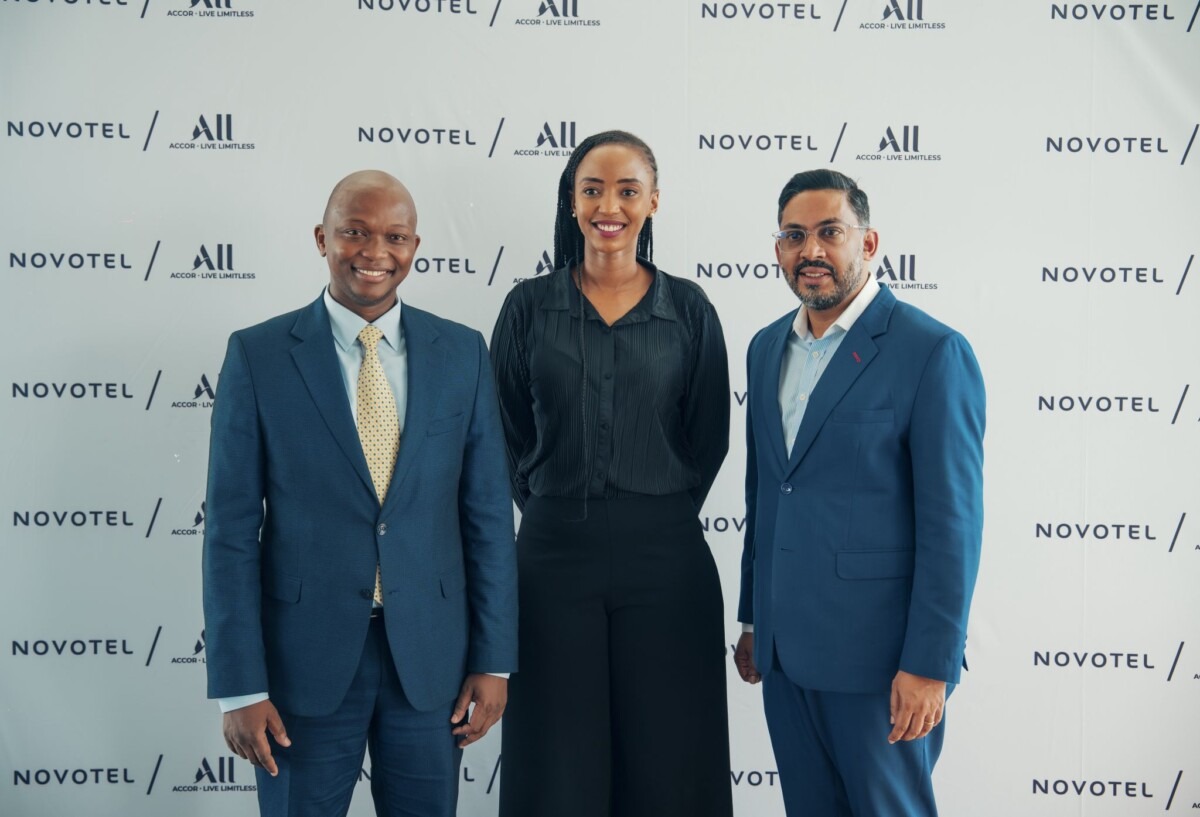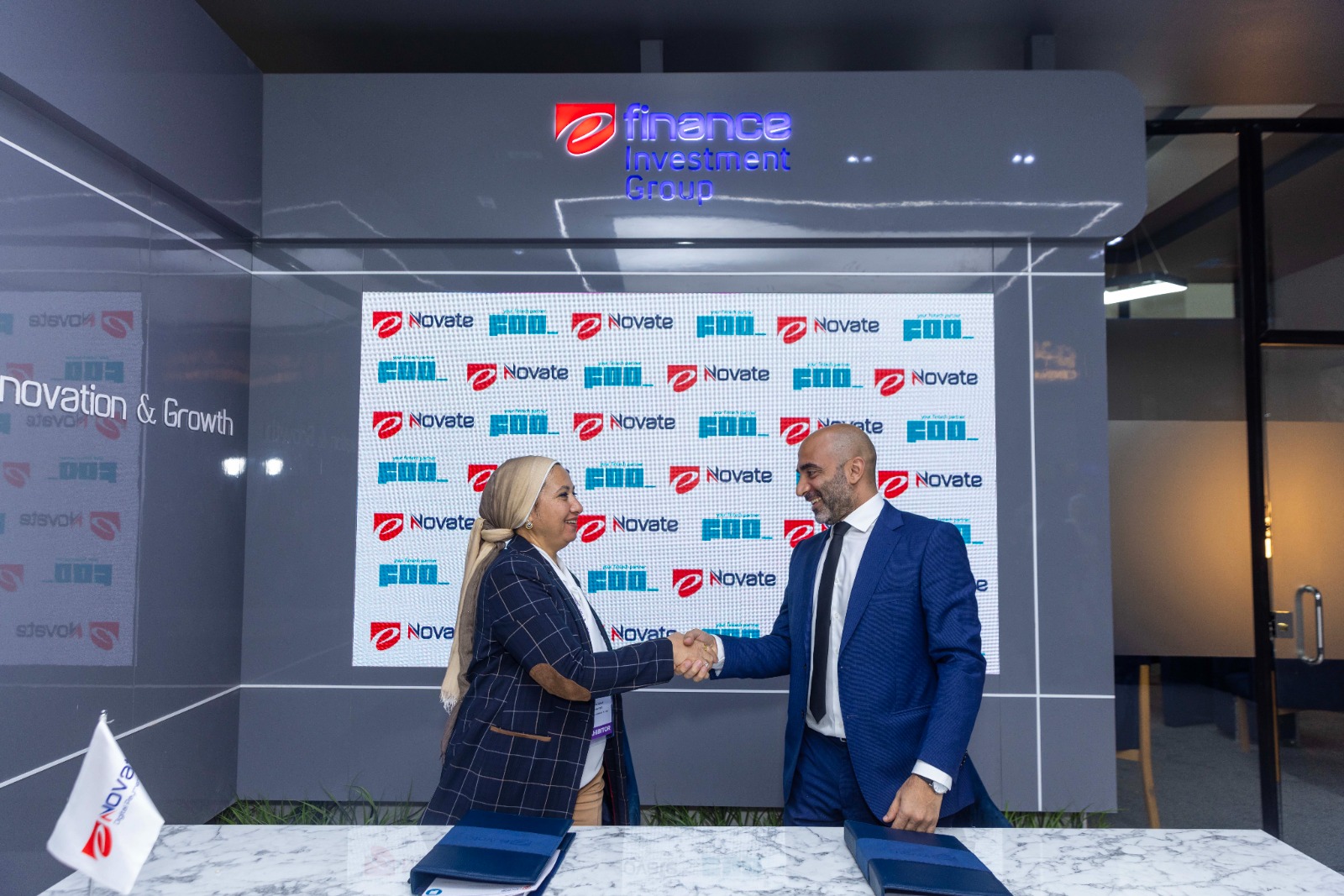Business Home
Going Cash-less: Hard Choices, Easy Life

Yesterday, the CBN released a circular on the “Implementation of the Cash-less Policy”. Much of the social media dialogue diverted from Andela’s restructuring to the policy’s potential impact on the economy – especially for micro, small and medium enterprises (MSMEs). A lot of comments highlighted the perceived “ineptness” of this policy and conceived it as an attempt to further complicate things, frustrate small businesses and increase the number of businesses within the informal economy.
Do the facts agree with this position? No.
In this article, I argue that yesterday was calculated and is a step in the right direction.
A Short History Lesson
On 1 January 2012, there was an attempt by the government to curb excess cash in circulation by introducing the Cash-less Nigeria Policy. It was first introduced in Lagos and prescribed handling charges on cash in excess of N500,000 (individuals) and N3,000,000 (corporate bodies).
The policy was not put in place to remove cash from the equation but to reduce its volume. It also aimed to encourage more electronic based transaction systems e.g. POS terminals, short codes and the like. The policy was first rested in Lagos state with service charges taking effect from 30 March 2012.
Under the policy, effective from June 1, 2012 daily cumulative withdrawals and lodgment in banks by individual would be limited to a maximum of N150,000, while daily cumulative withdrawals and lodgments by corporate customers is pegged at N1million. However, individuals and corporate organizations wishing to withdraw above the fixed amount would have to pay special charges.
Essentially – this has happened before, it was always in the offing.
Why is Everyone Worked Up on Social Media?
To clarify the position in yesterday’s release, if you withdraw or deposit N500,100, the charge will be levied on the N100 and not the entire sum. After all, it’s little drops of water that makes an ocean. Dissenting opinions on the issue argue from two major standpoints and I have set them out in the following bullets.
Financial Inclusion
The first and most popular argument against the CBN’s cash-less move borders around financial inclusion. Proponents say Nigerians will be less interested in the banks and frequently conjure an illiterate Nigerian man who lives under a rock in some remote Nigerian village to prove their point. However, Nigeria’s current vector does not support the conclusions many commentators have reached.
Strong economies have equally strong banks; Nigeria’s banks are only beginning to get back on their feet. The informal economy valued at $240bn (IMF) presents an opportunity for the government to stabilize monetary policy and redefine banking in Nigeria. The pertinent question is, how does the government intend to do it?
Enter the CBN’s National Financial Inclusion Strategy (NFIS)
The long term move for the NFIS is to ensure that 80% of bankable adults in Nigeria have access to financial services. This is the reason why you have telecommunications companies offering Mobile Money nationwide, why there are more vending machines on the Island and why POS Terminals are available at barbershops in Modakeke (for a commission, you can withdraw and send money).
It has taken time but, it is working out – execution is key.
Ease of Doing Business
Another argument borders around ease of doing business, especially for MSMEs. Ask anyone who makes this argument a simple question: what is easier, physically depositing/withdrawing N3,000,000 or transferring N300,000,000 via internet banking?
This particular argument sees the entire situation as high risk because, if handled improperly, there is the possibility that businesses in the informal sector are crushed in the wake of yesterday’s announcement. Businesses and individuals alike have to pay N52 bank charges (plus VAT) on inter-bank transactions. Arguments from this quarters note that transferring money or using POS Terminals to make payments can reduce the incentive to have money in the bank in the first place.
I will use an illustration to explain how difficult it is to agree with the above position. A woman walks into Tejuosho market with N500,000 – she intends to buy 4 items from 4 different vendors. Which of the following options makes her life easier?
- Making those payments with *737# mobile transfer and paying N208 extra or
- Withdrawing N500,000 from her bank, taking it into Tejuosho market and making payments at 4 different shops.
Would you rather risk your personal safety because you intend to save N208? If we consider ripple effects in the illustration above, there seems to be an upside for companies involved in online payments, procurement and logistics. An upside any responsible government should leverage. If you do not want to use electronic payment channels, you would have to shoulder time costs, transport and think carefully about security.
Understanding the N500,000 Threshold
The statistics show that if 100 Nigerians read this article, only 2 will have over N500,000 in their bank accounts. Thus, there is at least a 20:1000 chance that this policy may never apply to you. On the off chance that it does, you most likely are in the 2% of Nigerians that own 90% of all bank deposits.
The aforestated shows that the Central Bank of Nigeria has by default safeguarded most Nigerians and inadvertently created an exception to the policy – the 98%. It is simple, the bulk of Nigeria’s individual and business demographic will never have to shell these fees. It shows that this policy was carefully thought out, all that’s left is effective implementation.
Government Considerations
Corruption has been touted as an existential threat to Nigeria. As a country, we hold multiple records on several corruption indexes. Through this policy it has become easier to monitor the movement of money and track illicit financial flows. Whether we grasp this or not, it is a big win for Nigeria.
Monetary inflation is becoming an increasing threat to efforts to stabilize the economy. Monetary inflation happens when there is a consistent rise in the amount of money available within a currency area/country. When this happens especially with the admixture of several other factors including the transmission mechanism, there is a tendency for prices of goods and services to cost substantially more. Essentially, with less cash in circulation – chances that the price of garri will go up become minimal (too much money makes garri expensive).
Also, it is impracticable for this government to pay interests on loans, fund the new minimum wage, protect the foreign reserves, subsidize petrol, cover federal salaries and continue projects under the current revenue streams. The government realizes this and is taking steps to create long term sustainability. More money from the 2% means that more projects are possible going forward.
Going Forward
There are obvious risks with the policy especially as there seemed to be no warning or a phasing stage. The Buhari led administration has brought this policy at a time when there is the ban on CBN forex for importation of certain goods, proposed increased in VAT to 7.5% and tons of other policies that we cannot seem to agree are in Nigeria’s best interests. However, we can all agree that the government is driving change with monetary policy.
For the Cash-less policy to work, proper execution is more important than a viral A4 printout/PDF with the CBN letterhead. The government must clarify exemptions to the rule, increase the ease of access to mobile money and better network coverage.
Also Read SMEs: Carefully Navigating The Loan Agreement
The Cash-less Policy, if properly executed, might put an end to tally numbers and long queues in banks, increase the amount of diversified small businesses (small businesses providing peripheral financial services) and increase the formal economy.
Irrespective of Nigeria’s lingering challenge with implementation, I am taking the road less travelled by saying, Nigeria is actually playing to her strengths – we will be fine.
Author:
Samuel Korie is a graduate of Law from Obafemi Awolowo University (formerly University of Ife). He is passionate about policy, volunteering and the unchartered frontiers of the legal profession.
Economy
Meta Hosts its First Youth Summit in Nigeria to Drive Innovation and Empowerment

Meta recently hosted its first Youth Summit in Lagos, Nigeria, bringing together over 200 young professionals, students, recent graduates, creatives, tech enthusiasts and aspiring entrepreneurs.
Themed ‘Empowering Youth Through Technology, Innovation and Entrepreneurship’, the summit included a series of thought-provoking panel discussions, a mentoring session and an interactive workshop designed to equip young Nigerians with the skills, insights and networks needed to thrive in today’s tech-driven world.
Commenting about the event, Phil Oduor, Head of Policy Programs, Sub-Saharan Africa said, “At Meta, we believe that today’s youth are tomorrow’s change-makers. Through initiatives like the Youth Summit, we aim to foster innovation, promote digital literacy and empower young Nigerians with the tools and opportunities to realise their potential and contribute to Nigeria’s growing digital economy.”
Delivering the keynote address, Femi Aluko, CEO/Co-Founder, Chowdeck, shared his journey of breaking barriers to achieve success in tech. He encouraged attendees to embrace the limitless opportunities within today’s technology ecosystem.
A panel discussion, led by Chinny Francis, Public Policy Manager at Meta, featured panellists Nifemi Akinwamide, Head of Operations, Alt School; Adaora Mbelu, Co-Founder of Lumination Global and Obaloluwa Adeagbo, Marketing Lead at Talstack. They shared valuable insights about the future of work, emphasising the importance of storytelling to build a personal brand, practicing self-awareness, developing soft skills, lifelong learning and honing problem-solving skills to thrive in a digitally transformed world.
Francis Sani, Technical Adviser for Innovation, Entrepreneurship & Capital at the Federal Ministry of Communications, Innovation & Digital Economy, spoke at the event. He highlighted the 3 Million Technical Talent (3MTT) program, emphasising that the program aims to build Nigeria’s technical talent backbone to drive the digital economy and position Nigeria as a net talent exporter. He encouraged youth to take advantage of this opportunity.
Another panel of industry experts took the stage during the ‘Lunch and Learn: Navigating Entrepreneurship in a Rapidly Changing Landscape’ session, moderated by Sade Dada, Head of Public Policy for Anglophone West Africa at Meta. Seye Bandele, CEO of PaidHR and Damilola Teidi-Ayoola, Head of Platform and Networks at Ventures Platform Fund, shared their invaluable insights. Seye highlighted the importance of grit, curiosity and candour, while Damilola reinforced the need to understand one’s target audience, deliver value through their business and embrace data-driven decision-making in the dynamic entrepreneurial landscape.
The event also featured inspiring conversations with leading figures in the creative industry. Miss Techy, an award winning tech content creator and Salem King, a creator, storyteller, author and speaker, shared their experiences and advice on achieving long-term success. Attendees also benefited from an interactive workshop and a mentoring session, where industry experts shared practical advice and strategies for entrepreneurs and tech enthusiasts.
Meta’s Youth Summit 2024 highlights a commitment to driving positive change, championing youth empowerment and advancing economic opportunities in Nigeria. Through investments in key areas—such as the creative industry, digital literacy, economic impact and youth job training—Meta is dedicated to empowering young Nigerians to thrive in today’s tech-driven world.
Cross-section of some of the attendees at the Meta Youth Summit 2024 in Lagos
L-R: Chinny Francis, Public Policy Manager, Meta; Nifemi Akinwamide, Head of Operations, Alt School; Adaora Mbelu, Co-Founder of Lumination Global and Obaloluwa Adeagbo, Marketing Lead at Talstack.
L-R: Sade Dada, Head of Public Policy, Anglophone West Africa, Meta; Damilola Teidi-Ayoola, Head of Platform and Networks, Ventures Platform Fund, and Seye Bandele, Chief Executive Officer, PaidHR during the Lunch and Learn: Navigating Entrepreneurship in a Rapidly Changing Landscape panel session.
Salem King, a creator, storyteller, author and speaker and Miss Techy, an award winning tech content creator
During a mentoring session workshop
Femi Aluko, Chief Executive Officer and Co-founder, Chowdeck.
Francis Sani, Technical Adviser to the minister of communications and digital economy of Nigeria
Press Release
Novotel, French Global Hotel Expands Into East Africa

Novotel Director Sales and Marketing Joesph Kimondo, PR and Marketing Manager Ivy Irungu, General Manager Fabio gonsalves, During the Media Briefing at the hotel (L-R).
Novotel, one of Accor’s flagship brands and a champion of balanced living, is proud to announce the opening of Novotel Nairobi Westlands, Kenya.
Situated in the vibrant Westlands area, the new hotel seamlessly balances moments of adventure, relaxation, business, and pleasure, offering a truly reenergising experience just 20 minutes from Jomo Kenyatta International Airport (JKIA). Guests can explore multiple attractions with ease such as the Nairobi National Park, modern shopping malls, entertainment spots, the Giraffe Centre, and the Maasai traditional Market. The hotel caters to business travellers and families eager to share quality moments.
Novotel Nairobi Westlands offers 347 stylish rooms and suites, all featuring the brand’s signature design concept by RF Studio, which emphasises adaptability and sustainability, creating a comfortable, modern atmosphere. For business travellers, the hotel offers 13 versatile, intuitive meeting and event spaces, including a ballroom that can host over 100 guests – ideal for conferences, corporate functions, and social gatherings.
For guests seeking relaxation, the hotel’s state-of-the-art spa offers a range of curated signature massage therapies, designed to provide the ultimate rejuvenation experience. Each treatment is crafted to melt away stress and restore balance. For those looking to stay active, the fitness centre provides expert-led individual and group training sessions, offering a mix of tailored workout routines to suit all fitness levels.
“We are excited to introduce Novotel to Nairobi, a city that beautifully blends rich cultural heritage with modern dynamism,” said Fabio Gonsalves, General Manager of Novotel Nairobi Westlands, Kenya. ‘’Our goal is to create a welcoming space for business travelers and families alike, where quality moments lead to a more balanced life. At Novotel Nairobi Westlands, where modern living meets the pulse of cultural fusion, we offer flexible workspaces and relaxed dining options to suit everyone. It’s a place where guests can truly unwind, connect, and leave feeling invigorated.
The hotel’s four distinct dining concepts take guests on a culinary journey. The rooftop Trunk & Tandoor Gastro Bar offers Indian-inspired cuisine paired with breathtaking views of Nairobi’s skyline, creating the perfect setting for a relaxed evening. Gemma’s Italian Kitchen & Bar provides an all-day dining experience with rich Italian flavours in a welcoming atmosphere. Located at the heart of the lobby, the Safari themed Social Hub coffee lounge and bar adds a unique local flair, inviting guests to connect and unwind. For those seeking a more laid-back experience, the rooftop Pool Bar serves light bites and refreshing drinks, perfect for unwinding under the sun while enjoying the stunning panoramic city views.
Whether complementing a safari adventure or enjoying a family getaway, Novotel Nairobi Westlands offers travellers and locals the perfect environment to connect with family, friends, and colleagues and share quality moments.
“With the opening of Novotel Nairobi Westlands, we are proud to reaffirm our commitment to Africa. The hotel offers a gateway to Nairobi’s vibrant experiences and marks a significant milestone in our growth strategy, as we continue to expand our footprint in key markets across the continent while enriching local communities.” said Paul Stevens, Chief Operating Officer Premium, Midscale & Economy Division, Middle East & Africa for Accor.
Following a longstanding commitment to support its guests’ pursuit of balance in their lives, Novotel announced a three-year agreement with World Wide Fund for Nature (WWF) to champion the protection and restoration of the world’s oceans, the greatest source of balance for the planet’s climate, through science-based action and conservation projects. Novotel has built a three-year Positive Impact Plan, rooted in three of the United Nations’ priority ocean-related actions, namely: reducing marine pollution and ocean acidification, particularly from land-based activities; fighting overfishing and promoting sustainable fishing models; and increasing scientific knowledge and research for ocean health.
To celebrate the opening, Novotel Nairobi Westlands is offering rates from Kes 20,000, including breakfast. True to the Novotel Family Promise, up to two children under 16 can stay for free in their parents’ room.
Members of the brand’s ALL loyalty programme, can unlock 4X Reward Points when booking on all.com until 24/11/2024, for stays up until 12/01/2025. Guests can join the loyalty programme for free and earn points towards a number of benefits, including free hotel stays.
Novotel Nairobi Westlands is Safe Hotels Certified, ensuring our guests peace of mind with globally recognized safety standards. This certification highlights our commitment to a secure, comfortable, and welcoming stay.
Press Release
FOO Partners with eNovate To Further Digital Transformation In Egypt

FOO, the award-winning B2B Software as a Service (SaaS) solutions provider, has partnered with eNovate (formerly known as eCards), Egypt’s premier provider of cutting-edge digital payment solutions, to build upon eNovate’s existing portfolio of products and services.
eNovate is an independent subsidiary of eFinance Investment Group (EFIG), Egypt’s leading investment management firm. Originally established in 2009 as EFIG’s card services division, it has since evolved to deliver comprehensive, integrated digital payment solutions for a range of clients, including fintechs and financial institutions; ministries and governmental entities; transportation authorities; and NGOs.
With more than 55 million cards issued to date, and millions of transactions processed annually for Meeza, VISA and Mastercard, eNovate continues to position itself at the forefront of Egypt’s digital payment ecosystem.
eNovate has strategically partnered with FOO to enhance its portfolio by leveraging FOO’s expertise, extensive range of services, and innovative approach to product development. FOO’s modular platform, built on a customizable suite of micro-services, enables the delivery of SaaS products across the financial services spectrum – from digital onboarding to digital banking – with unparalleled levels of flexibility, scalability and security.
Through this partnership, eNovate will also deliver Fintech as a Service (FaaS) solutions. Designed to help fintechs rapidly launch and scale their operations, FOO’s advanced ‘out-of-the-box’ FaaS solution streamlines the development process. This approach drastically reduces the time and resources needed to bring fintech products to market, enabling companies to move from concept to deployment within months, rather than years. By providing a comprehensive, scalable platform, this collaboration empowers fintechs across Egypt to focus on innovation and growth, accelerating their path to success in the country’s dynamic financial sector.
Both companies share a strong commitment to driving digital transformation, both within Egypt and the broader payment ecosystem. This collaboration will build on eNovate’s success to date, to further the delivery of fully compliant, end-to-end solutions that meet the diverse needs of its clients and their customers.
This ongoing partnership between FOO and eNovate includes several key projects, the first of which is an end-to-end digital solution for universities across Egypt. Integrated with each university’s learning management system, it will enable students to complete a range of actions – from payments to identity verification – via one easy-to-use app.
Further significant projects are to be announced in due course.
Ghady Rayess, Co-founder and Managing Director at FOO, commented: “At FOO, innovation is integral to our approach. We are proud to partner with eNovate, a true industry trailblazer, to contribute to the remarkable transformation taking place in Egypt’s financial services sector. With the support of the Central Bank of Egypt (CBE), we are committed to delivering robust financial solutions that will not only strengthen eNovate’s position as a leading innovation hub, but also further digital transformation across Egypt.”
Nashwa Kamel, CEO at eNovate, commented: “We are delighted to be working with FOO. Their commitment to cutting-edge technology and innovation aligns with our vision for providing digital payment solutions in Egypt and across the region. This partnership represents a milestone in our mission to revolutionize the financial landscape, providing our clients and their customers with unparalleled opportunities and enhanced experiences. By combining eNovate’s expertise with FOO’s pioneering solutions, we are positioned to set new benchmarks in the industry, driving forward digital transformation and reinforcing our role as a leader in the global payment ecosystem.”
-

 Afripreneur12 hours ago
Afripreneur12 hours agoRedefining Real Estate Marketing: An Interview with Imelda Usoro Olaoye, Founder of Thinkmint
-

 Afripreneur11 hours ago
Afripreneur11 hours agoOluchi Anoruo on building SmartPharm and addressing access to healthcare products
-

 Economy16 hours ago
Economy16 hours agoMeta Hosts its First Youth Summit in Nigeria to Drive Innovation and Empowerment
-

 Technology17 hours ago
Technology17 hours agoLG’s Brand Reinvention: A Global Success Story

















